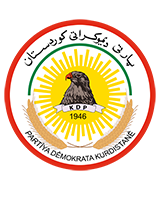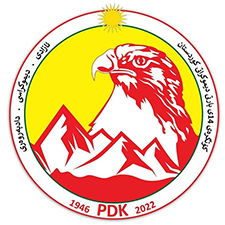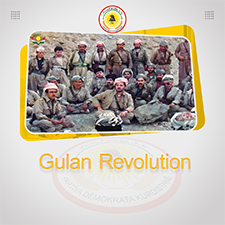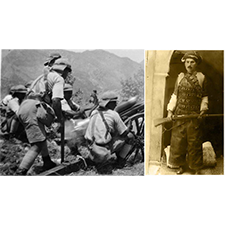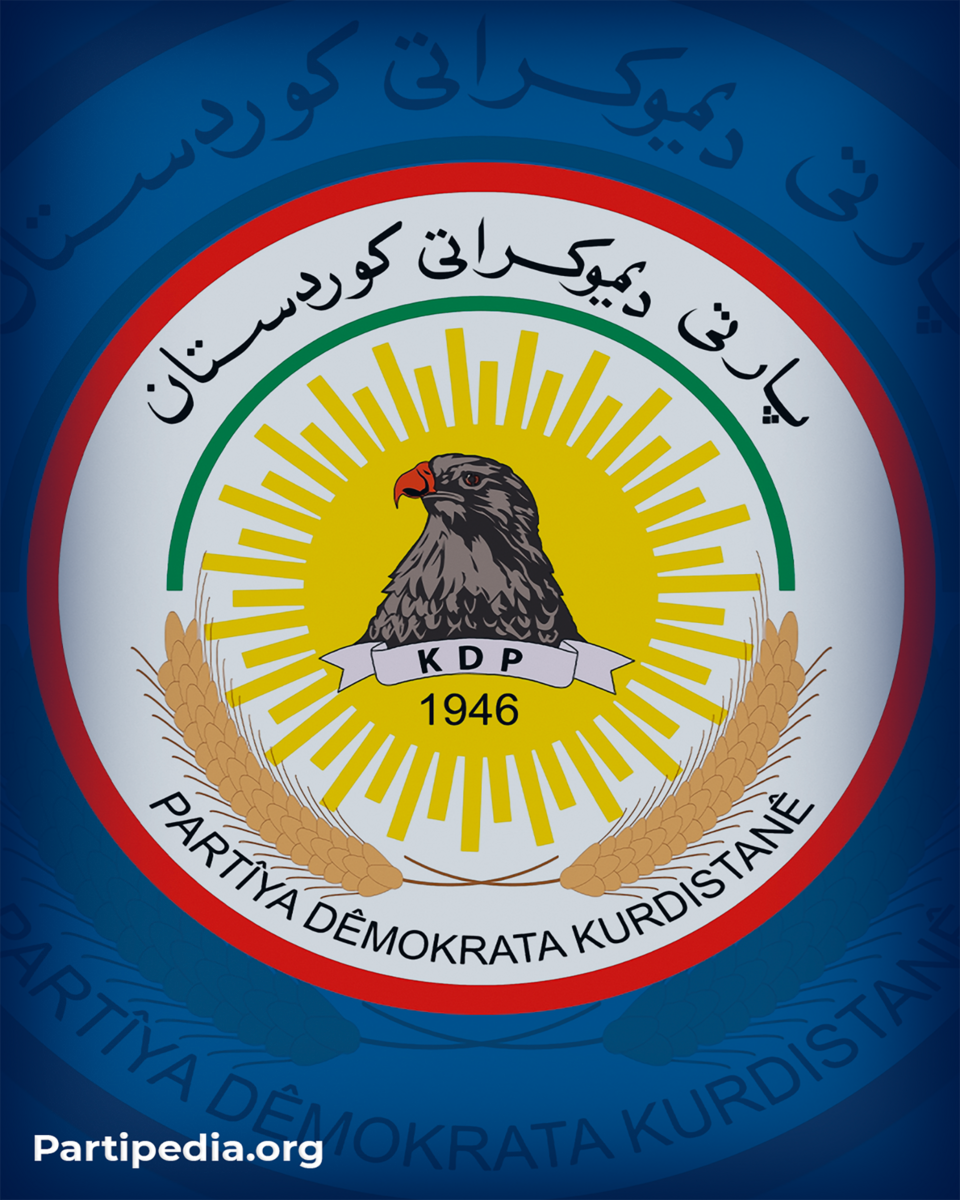Open Work Phase
After the victory of the July 14, 1958 revolution, the political parties of the Iraqi National Union Front began to operate freely. The revolutionary leadership promised to issue official licenses to Iraqi parties after the end of the transition period, but this promise was delayed until December, 1960.
On December 6, 1960, the Sovereign Council of the Iraqi Republic passed a law on a number of associations, in order to license political parties, in 46 articles. The law defined parties as working to achieve a number of political goals, subject to several conditions, including: All party members must be Iraqi citizens, and the armed forces, state officials in the diplomatic department, and primary and secondary school students are not allowed to become party members.
After the enactment of this law, KDP leadership has send a letter to the Iraqi Interior Ministry through a group of ten people led by President Mustafa Barzani and a group of 50 supporters. On February 6, 1960, the Iraqi Ministry of Interior officially and legally licensed KDP, and the party was allowed to publish it central newspaper, Khabat.
The members of the establishment committee of the open work phase included:
1- Mustafa Barzani, President
2- Ibrahim Ahmad, Secretary
3- Nuri Shaweis
4- Omar Mustafa
5- Ali Abdullah Amin
6- Ali Abdullah Reza
7- Mullah Abdullah Ismail
8- Hilmi Ali Sharif
9- Ismail Arif
10- Shamsaddin Mufti.
Holding a Congress
After the Iraqi Interior Ministry recognized KDP as a political entity with the right to open activities throughout Iraq, the KDP leadership worked to hold a new party congress although KDP held its congress in 1959.
After holding local conferences in all branch committees, regional committees and mass organizations, the delegates to the congress were legally elected by open vote. Then, at 10 am on May 5, 1960, in the presence of President Mustafa Barzani, the fifth congress was held openly with the presence of 168 delegates at the headquarters of KDP in the Saadouni neighborhood of Baghdad.
First, Ibrahim Ahmed read out the report of the previous central committee, then Nuri Shaweis read out the financial report and Omar Mustafa read out the organization report. The report of the Higher Monitoring and Inspection Committee was also read out. The congress then decided to form several committees to review the complaint report, rules and programs. The committees were: program and rules committee, committee to investigate reports, finance committee and bodies and complaints committee.
Due to obtaining permission and the political changes in Iraq at that time, The Fifth Congress made some changes to the program, such as the removal of Article 3, which referred to the use of Marxist-Leninist theory. The article related to the right of Kurdistan to independence in all parts of Kurdistan was also amended and changed to "attempt to support our Kurdish brothers wherever they are in the struggle they are waging for the completion of freedom and national rights or obtaining the support of the Iraqi Republic, and provide the Kurds in other parts of the Kurdistan with material and spiritual assistance”.
The structure of KDP, based on the internal rules of the fifth congress, included: cells, organization committee, regional committee, branch committee, central committee, political bureau, secretary of the central committee and president.
From the preparations to the end, the congress was held in a democratic atmosphere and President Mustafa Barzani was unanimously re-elected as president. Afterwards, a leadership was elected by the members of the congress and for the first time a woman reached the leadership:
1- Mustafa Barzani, President
2- Ibrahim Ahmad, Secretary
3- Nuri Shaweis
4- Omar Mustafa
5- Dr. Murad Aziz
6- Ali Abdullah
7- Saleh Yousfi
8- Ali Askari
9- Hashim Akreyi
10- Jalal Shuani
11- Nahidah Sheikh Salam
12- Abdullah Ismail Ahmed
13- Ahmed Abdullah Amedi
14- Ali Hamdi Musa
15- Abdul Hussein Faily
16- Sayed Aziz Shamzini
17- Nuri Ahmad Taha.
18- Jalal Talabani.
Sayyid Aziz Shamzini, Nuri Ahmad Taha and Jalal Talabani were not named as leadership members because they were Iraqi army officers who were not allowed to become members of any political party.
The reserves of the Central Committee were as follows:
1- Naaman Barzani
2- Hilmi Ali Sharif
3- Haider Mohammed Amin
4- Mohammed Haji Tahir.
The members of the party's political bureau were elected by the members of the central committee, who were: Ibrahim Ahmad, Nuri Shaweis, Ali Abdullah, Dr. Murad Aziz, Omar Mustafa.
High Supervision and Inspection Board "High Supervision", were directly elected by the congress delegates, who were: Habib Mohammed Karim, Zakia Ismail Haqi, Hormoz Nissan, Khalid Hassan Yousfi and Omar Hassan Bamarni16. The reserves of the High Inspection Committee were Abbas Hussein and Yadullah Faily.
Another decision of the congress was to support the Iraqi government against its opponents since for the first time the KDP had an official license and could operate freely. The peaceful situation and open political work let the news of the congress reach the Iraqi media and covered it with great interest.
Sources
• مسعود بارزانی، بارزانی و بزووتنهوهی رزگاریخوازی كورد، ١٩٥٨-١٩٦١، بهرگی دووهم، (٢٠١٢).
• قانون الجمعیات، مجلة الوقایع العراقیة، وزارة الارشاد في العراق، العدد ٢٨٣، بغداد، السبت، ٢ كانون الثاني ١٩٦٠م.
• حبیب محمد كریم، تأریخ الحزب الدیمقراطي الكوردستاني ـ العراق (في محطات رئیسیة) ١٩٤٦ ـ ١٩٩٣، (دهوك ـ مطبعة خهبات ـ ١٩٩٨م).
• تهیة اجازة الحزب الدیمقراطي لكوردستان العراق، جریدة خهبات (النضال)، العدد ١٤١، بغداد، الأحد، ٩ كانون الثاني ١٩٦٠م.
• كۆنگرهی پێنجهمی پارتی دیموكراتی كوردستان، گۆڤاری ڕۆژی نوێ، ژماره ٣، ساڵی یهكهم، سلهیمانی، چاپخانهی كامهران، حوزهیران ١٩٦٠ز.
• دكتۆر شێركۆ فهتحوڵا عومهر، پارتی دیموكراتی كوردستان و بزووتنهوهی رزگاریخوازی نهتهوهی كورد ١٩٤٦ – ١٩٥٧، و. سواره قهڵادزهێی، (چاپخانهی شههید ئازاد ههورامی - ٢٠١٣).
• عبدالستار طاهر شریف، تاریخ الحزب الثوري الكردستاني، الطبعة الثانیة، (بغداد ـ منشورات الثوري ـ ١٩٧٩م).
• المؤتمر العام للحزب الدیمقراطي الكوردستاني، جریدة اتحاد الشعب، العدد ٨٨، السنة الثانیة، بغداد، الأثنین، ٩ مایس ١٩٦٠م.
• دهقی پڕۆگرامی پارتی دیموكراتی كوردستان – عێراق، كۆنگرهی پێنجهم.
• مؤتمر الحزبین الوطنیین الوطني الدیمقراطي والدیمقراطي الكوردستاني، جریدة اتحاد الشعب، العدد ٨٦، بغداد، الجمعة، ٦ مایس ١٩٦٠م.




